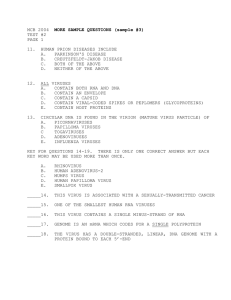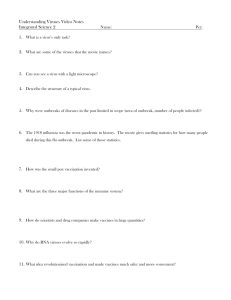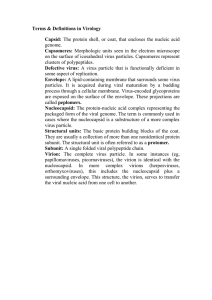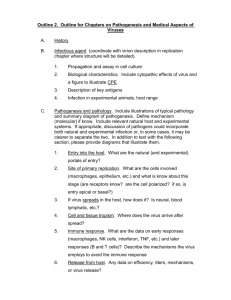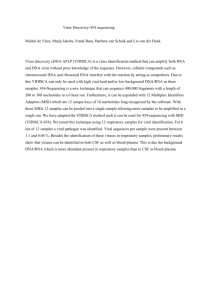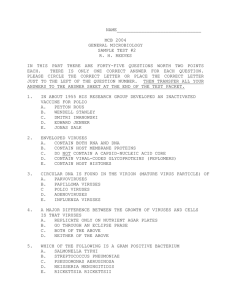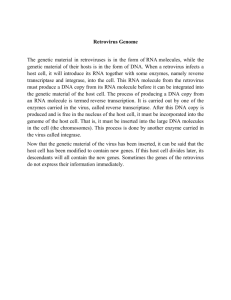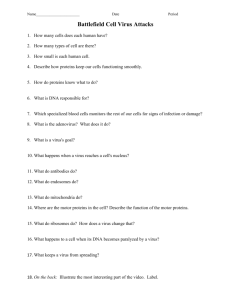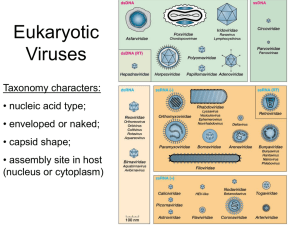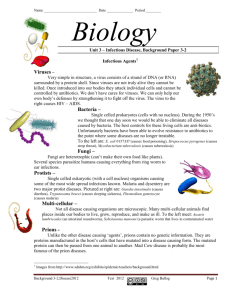Viral genomes. The genomes of viruses can be composed of either
advertisement
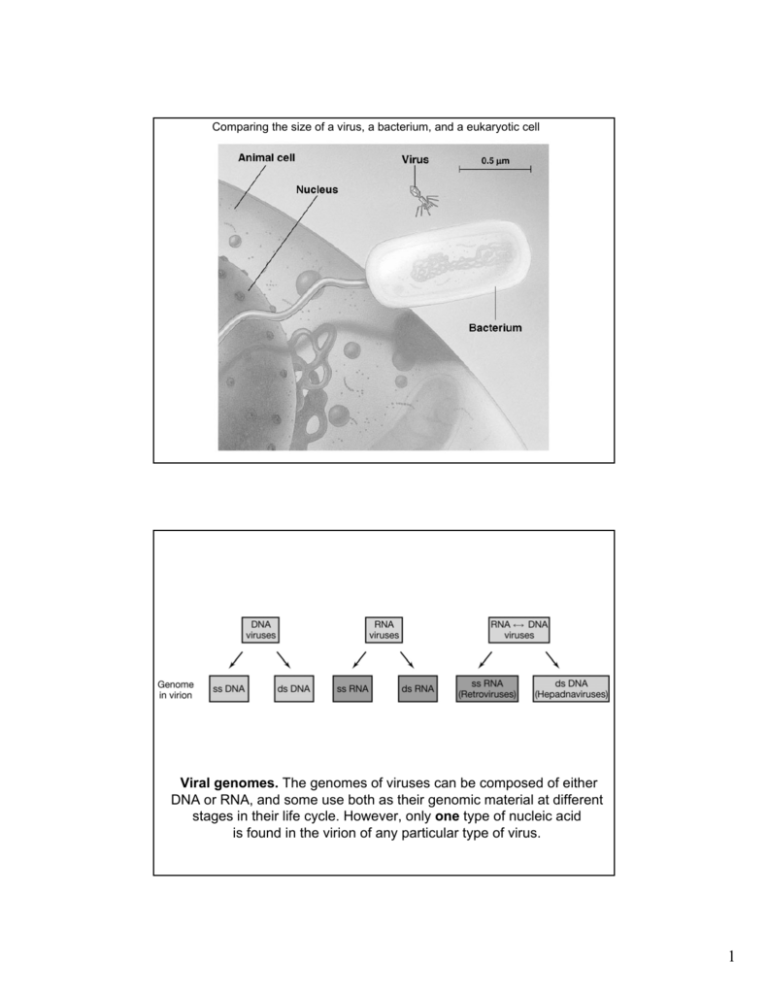
Comparing the size of a virus, a bacterium, and a eukaryotic cell Viral genomes. The genomes of viruses can be composed of either DNA or RNA, and some use both as their genomic material at different stages in their life cycle. However, only one type of nucleic acid is found in the virion of any particular type of virus. 1 Classes of Animal Viruses, Grouped by Type of Nucleic Acid Tobacco mosaic virion assembly 2 Tobacco mosaic virions Comparison of naked and enveloped virus, two basic types of virus particles. 3 Viral structures The replication cycle of a bacterial virus. Burst size = ave. # virions released 4 The one-step growth curve of virus replication. Attachment of T4 bacteriophage virion to the cell wall of Escherichia coli and injection of DNA 5 T-even Phages The lytic cycle of phage T4 6 The lysogenic and lytic reproductive cycles of phage λ, a temperate phage Retrovirus structure and function. 7 HIV, a retrovirus Structure of viroids, showing how single-stranded circular RNA can form a seemingly double-stranded structure by intrastrand base-pairing. Hold-overs from an RNA world??? 8 A hypothesis to explain how prions propagate Recent outbreaks of emerging and reemerging infectious diseases. Spongiform encephalitis, 1996 Hantavirus, 1997 Plague, 1997 Hantavirus, 1997 9 Emerging viruses Ebola virus: SS RNA Hantavirus: SS RNA Gram stain of Bacillus anthracis. 10 11 Herpes Simplex Virus Humans Same 12 13
